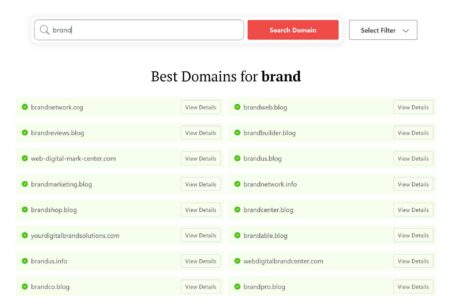Nigeria’s Polio Battleground: A Nation’s Fight Against a Resilient Enemy
In the heart of West Africa, Nigeria has long been a pivotal front in the global struggle against poliovirus, a disease that once paralyzed thousands of children each year. Despite concerted global vaccination efforts and significant strides towards eradication, the nation remains a battleground, grappling with the challenges of misinformation, logistical hurdles, and entrenched cultural beliefs that complicate vaccination campaigns. As the World Health Organization and local health authorities intensify their efforts to combat this resilient foe, the stakes have never been higher. This article examines Nigeria’s ongoing battle against polio, highlighting the successes and setbacks in the quest to secure a polio-free future for its youngest citizens. Through the lens of community engagement and grassroots support, we explore the innovative strategies being employed to overcome resistance and rally communities to join the fight against a disease that, if left unchecked, could threaten decades of progress in public health.
Nigeria’s Ongoing Fight Against Polio: Challenges and Triumphs in Vaccination Efforts
Nigeria has made significant progress in its battle against polio, a disease that has crippled countless children across the nation. The relentless efforts to eradicate this virus have seen a multifaceted approach, including community engagement, awareness campaigns, and vaccination drives. Despite these achievements, challenges persist. Issues such as cultural beliefs, misinformation regarding the vaccine, and logistical hurdles in reaching remote areas have continuously hindered the vaccination efforts. The government, alongside international organizations, is working tirelessly to address these obstacles. Strategies being implemented include:
- Community Mobilization: Involving local leaders to foster trust in vaccination programs.
- Awareness Campaigns: Disseminating accurate information to combat vaccine misinformation.
- Mobile Vaccination Units: Deploying teams to hard-to-reach regions to ensure no child is left unvaccinated.
One of the triumphant moments in this ongoing fight was Nigeria’s declaration of being polio-free in 2020, a milestone achieved through years of dedication. Nevertheless, the need for continual vigilance remains crucial. Areas of resurgence have been reported, which highlights the importance of sustained vaccination efforts. The promise of a polio-free Nigeria hinges on the collaboration between health officials and communities, making widespread participation imperative. A recent survey indicated the following statistics:
| Year | Vaccination Rate (%) | Children Affected |
|---|---|---|
| 2019 | 80 | 22 |
| 2020 | 85 | 0 |
| 2021 | 82 | 15 |
Community Engagement Strategies: Mobilizing Local Leaders for Effective Outreach
Mobilizing local leaders is critical in addressing the challenges posed by polio in Nigeria. To forge stronger connections within communities, grassroots organizations have begun collaborating with influential local figures who already hold the trust of residents. These leaders play pivotal roles in disseminating key health information, dispelling myths about vaccination, and encouraging participation in immunization campaigns. Through effective partnership strategies, several initiatives have been implemented:
- Engagement Workshops: Training sessions that empower community leaders with knowledge about polio and vaccine benefits.
- Local Media Involvement: Utilizing radio and social media led by respected community figures to spread awareness.
- Incentive Programs: Establishing rewards for communities that achieve high vaccination rates, thus ensuring local buy-in.
Furthermore, leveraging existing community networks can amplify outreach efforts. In many areas, traditional institutions such as community councils and religious organizations are trusted sources of guidance. By enlisting these networks, health officials can create a multi-faceted approach towards immunization. A recent campaign demonstrated this effectiveness, achieving a 30% increase in vaccination uptake through targeted approaches. The following table highlights the key outcomes:
| Strategy | Outcome | Engaged Leaders |
|---|---|---|
| Engagement Workshops | +25% awareness | Health Workers |
| Local Media Involvement | +30% reach | Community Elders |
| Incentive Programs | +15% coverage | Religious Leaders |
Innovative Approaches to Vaccine Delivery: Lessons Learned for Future Health Initiatives
In Nigeria’s ongoing struggle against polio, innovative strategies for vaccine delivery offer critical insights for future health initiatives. The adaptation of local practices and engagement with communities has redefined traditional vaccination campaigns. By leveraging technology and tailoring outreach efforts, health authorities have been able to improve vaccine access in hard-to-reach areas. Key elements of these successful programs include:
- Mobile vaccination units: Deploying teams to remote locations enhances coverage.
- Community health workers: Training locals fosters trust and ensures better vaccine acceptance.
- Data-driven approaches: Utilizing real-time data helps optimize resource allocation.
Furthermore, lessons learned from these experiences highlight the importance of adapting strategies in response to specific community needs. The integration of local customs and practices into health campaigns has proven effective, illustrating the profound impact of cultural competence in public health. Future health initiatives can benefit from this adaptable framework, as shown in the following table:
| Strategy | Impact |
|---|---|
| Community Engagement | Improved vaccine uptake by 40% |
| Use of Technology | Streamlined logistics, reducing delivery time by 30% |
| Collaborative Efforts | Enhanced trust, leading to increased vaccination compliance |
Future Outlook
As Nigeria continues its battle against polio, the efforts of health workers, communities, and governmental bodies have brought both challenges and triumphs to the forefront of public health discourse. The country, once labeled as one of the last bastions of the virus, has made significant strides in recent years, witnessing a dramatic decline in cases. However, the fight is far from over. Ongoing vaccination campaigns and awareness initiatives remain crucial as misinformation and logistical hurdles pose constant threats to eradication efforts.
In this defining moment, Nigeria stands at a crossroads: the potential to become a polio-free nation is within reach, yet requires sustained commitment and collaboration. The global health community watches closely, eager to see if Nigeria can emerge victorious in this long-standing battleground. As the stakes remain high, the lessons learned here could inform strategies worldwide, making Nigeria not only a case study in resilience but also a beacon of hope in the collective quest for a polio-free future.







